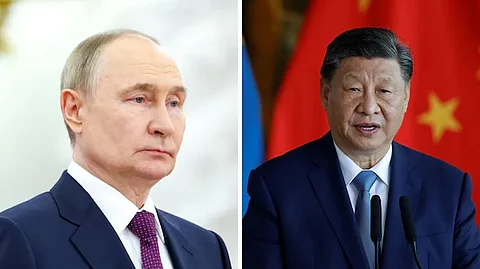

Leaders of the expanded BRICS group have convened in Rio de Janeiro for a high-stakes summit aimed at strengthening ties among emerging economies and countering the growing influence of Western-led global institutions. The gathering, however, is taking place under the shadow of U.S. President Donald Trump’s aggressive new tariff policies and intensifying global trade friction.
The summit marks the first major meeting of the enlarged BRICS bloc, which now includes Egypt, Ethiopia, Indonesia, Iran, Saudi Arabia, and the UAE alongside founding members Brazil, Russia, India, China, and South Africa. The group is looking to project itself as a unified voice for the Global South and a champion of multilateralism in a rapidly polarizing world.
A key focus of the summit is enhancing economic cooperation, reforming international institutions like the UN and IMF, and amplifying the role of developing nations in global decision-making. Member states are also expected to discuss ways to insulate themselves from Western economic pressure and to promote alternatives to the dollar-dominated financial system.
However, the absence of two central figures—Chinese President Xi Jinping and Russian President Vladimir Putin—has cast a shadow over the summit. Xi, for the first time since assuming office in 2012, has chosen not to attend in person, delegating Prime Minister Li Qiang to represent China. Putin is also skipping the event due to an International Criminal Court (ICC) arrest warrant related to the 2022 Ukraine invasion. As a signatory to the Rome Statute, Brazil would be obligated to act on the warrant if Putin were to visit.
These notable absences have fueled speculation about internal rifts and the future cohesion of BRICS, particularly as the bloc looks to expand its global footprint. Analysts suggest that without its two most powerful members physically present, the group may struggle to deliver a united message during a critical phase of global realignment.
Still, BRICS leaders are expected to reaffirm their shared commitment to multipolarity, institutional reform, and closer South-South cooperation, signaling that the bloc remains an active player in shaping the post-Western global order—despite the cracks showing on its surface.
(This story is published from a syndicated feed)